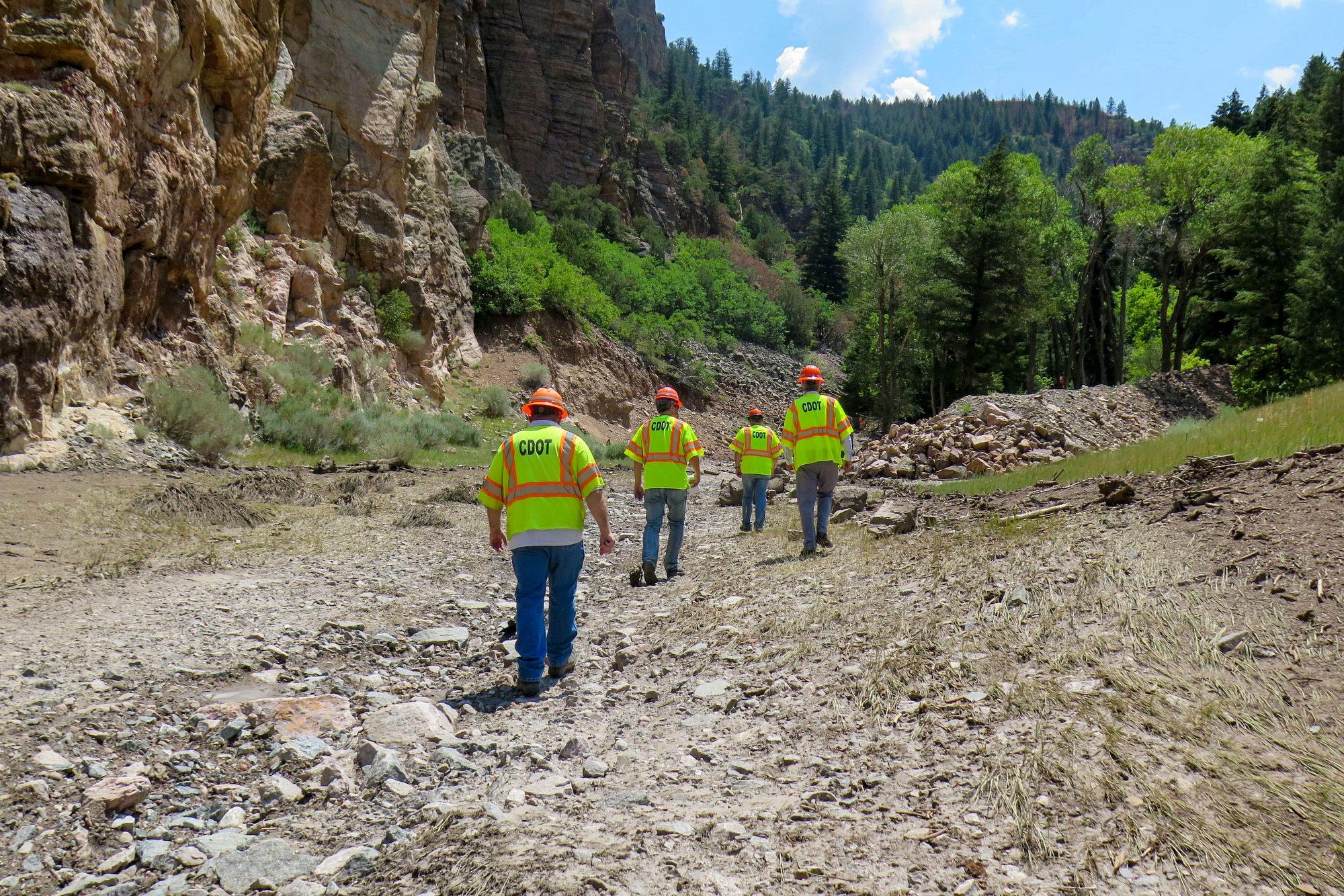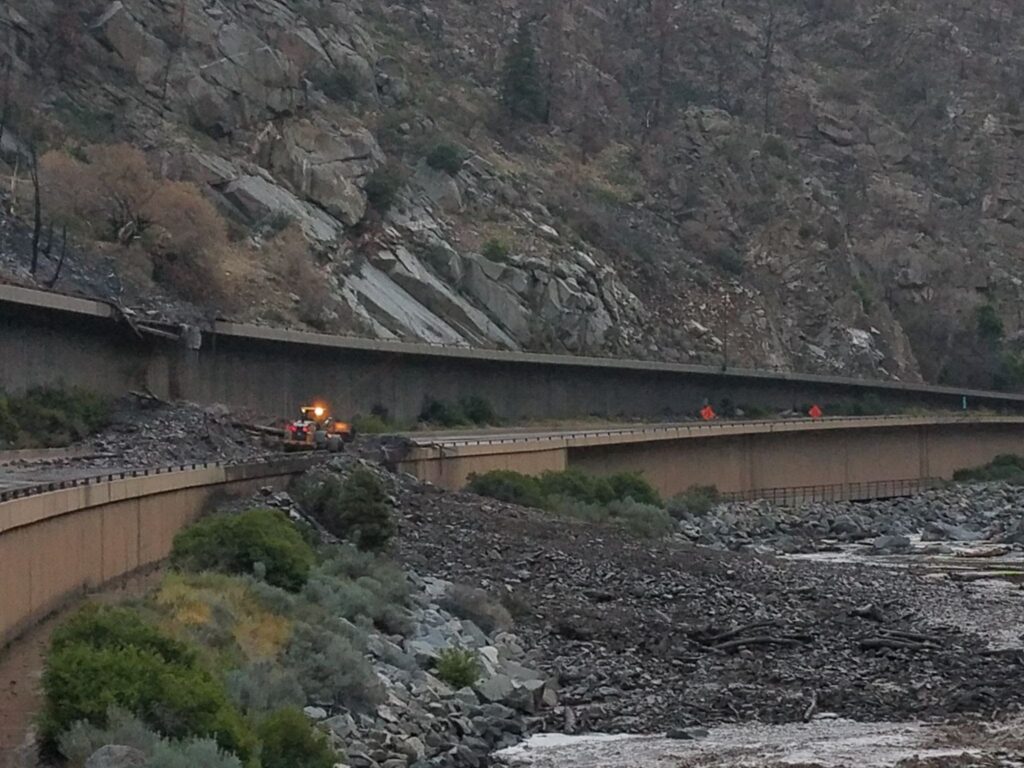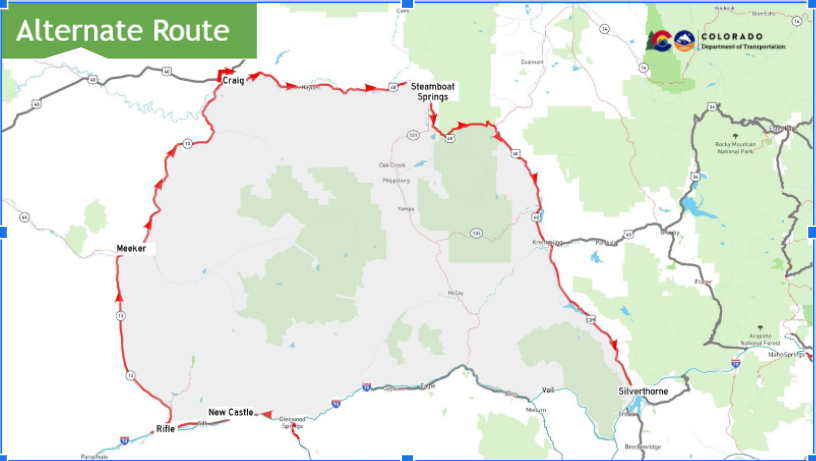
Editor's note: As of Aug. 2, I-70 through Glenwood Canyon is closed indefinitely for days, or possibly weeks, as transportation officials asses "extreme damage" caused by recent mudslides.
Updated on July 30 at 2:41 p.m.
More than 100 people were stranded on Interstate 70 in Glenwood Canyon overnight after mudslides flooded the interstate on Thursday, Colorado Department of Transportation officials said.
No one was reported missing or injured and many stranded motorists have since left the interstate, said CDOT spokesperson Matt Inzeo. Some of the stranded are waiting at a rest area east of Glenwood Springs until it is safe for them to drive out of the canyon, he said.
The interstate will likely remain closed at Glenwood Canyon throughout the weekend as crews continue to clear debris from the road. The area is under a flash flood watch with monsoon rains expected to continue over the weekend, according to the National Weather Service.
CDOT had initially closed I-70 around 4:30 p.m. Thursday due to a flash flood warning but reopened it after the warning was lifted. A storm quickly developed over the canyon at 9 p.m., leading the Weather Service to issue another flood warning and CDOT to once again close the highway.
About 29 people left their vehicles and followed crews and emergency responders to a CDOT facility inside a highway tunnel at Hanging Lake, according to the Garfield County Sheriff’s Office. They sheltered at the facility overnight.

A Roaring Fork Transportation Authority bus took some of the people trapped to a shelter set up at the Glenwood Springs Community Center early Friday morning, according to the sheriff’s office. Others drove their own vehicles out and followed the bus.
The temporary shelter, opened by the American Red Cross of Western Colorado, will remain open Friday to take in other people unable to return home.
Mudslides have overtaken I-70 in Glenwood Canyon several times this summer, leading CDOT to close the highway about 10 times. Maintenance crews have hovered over the area, shaping natural barriers and repaving sections of the road to help protect the interstate from flooding.
The National Weather Service has issued flash flood watches covering a large swath of northwest and north-central Colorado due to a storm system expected to move through Friday evening. More rain is expected over the weekend.
Officials recommend drivers headed west to take an alternate route from Silverthorne to Rifle, a distance of about two and a half hours.

Last year’s Grizzly Creek Fire burned across Glenwood Canyon, making the area much more susceptible to floods and mudslides that overtake I-70, bike lanes and railroad tracks.
Rain last week caused logs, boulders and mud to barrel down the hillside toward the highway. The debris jammed the river, caked guardrails and swept under railroad bridges. CDOT officials who toured the storm’s aftermath earlier this week said drivers should be aware of the risks if they pass through the area.
“Be mindful of Mother Nature,” said CDOT Executive Director Shoshana Lew. “The places that have the beauty because they’re remote also come with risks that relate to that.”
Maintenance crews have worked around the clock to divert water away from the highway, clear mud and restabilize areas damaged by the floods.
Workers last year built a barrier out of dirt and boulders to keep water from entering a CDOT facility inside the Hanging Lake tunnel in anticipation of burn scar flooding. The berm diverted the flow of logs, mud and rain from flooding the tunnels last week.
“It probably saved the state hundreds of millions of dollars,” said John Lorme, CDOT’s director of maintenance and operations. “If they had not done this and prepped for it, right now the road would be closed for an indefinite period of time.”
Boulders and trees washed down in last week’s storm came dangerously close to the eastbound lanes of I-70, pushing water under the highway’s foundation and flooding bike lanes. Crews unloaded excavators from a freight train to dig a new channel and redirect the river to its original path.
Lew said that closing the highways and clearing mudslides has been expensive both for CDOT and the surrounding towns that rely on tourism and recreation. The problem, she added, is likely to become worse as climate change increases the number and size of wildfires and burn scars.
Rain is forecasted in Glenwood Springs today through early next week, according to the National Weather Service. Other burn scars in the state, including areas hit by the Cameron Peak and East Troublesome fires last year, are also at elevated risk of flash flooding.
Three people were killed after a flash flood on July 20 caused a debris flow in a burn scar near the Poudre Canyon in Larimer County.








